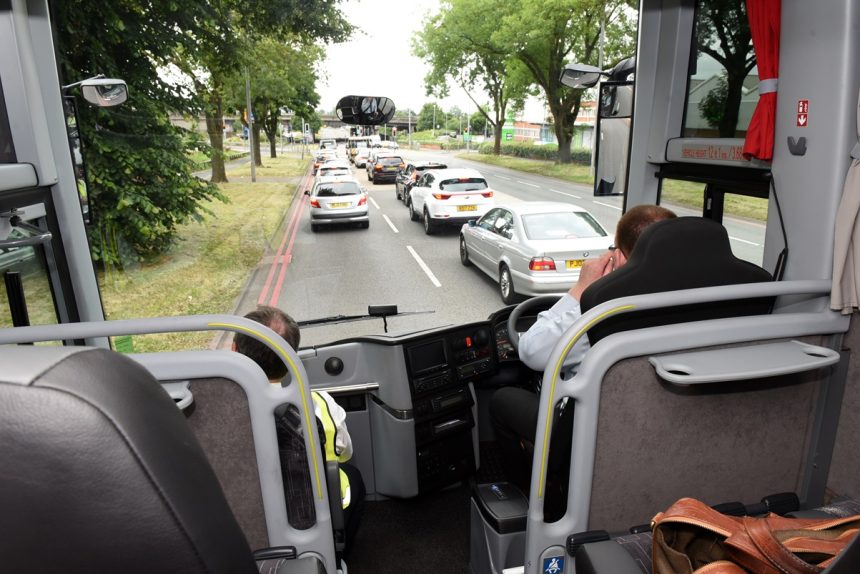Amendments and modifications to legislation that reflect how international journeys by coach and bus between the UK and EU nations fall under AETR hours regulations came into force via statutory instrument on 21 April.
It brings no practical change to international operations. Instead, the instrument formalises into law a position that has been observed from an enforcement perspective since late 2024.
Under that now-superseded approach, international passenger journeys when within the UK continued to be legally subject to the assimilated EU drivers’ hours regulations while the statutory instrument was awaited, but enforcement by DVSA was in line with AETR.
The legislative update from 21 April means that the legal basis for those international passenger journeys now formally reflects how they are under AETR. It also permits proper enforcement against drivers of EU-registered PSVs when they are in the UK.
An explanatory memorandum published at the same time describes how “a temporary enforcement position” was observed by DVSA during the intermediate period. It permitted international passenger journeys that complied with AETR but which “did not meet the requirements of the assimilated [EU] drivers’ hours and tachograph regulations.”
The latter is noted as referring to a requirement around smart tachograph 2 retrofit for international journeys under the assimilated regulations. The memorandum adds that while variance between AETR and EU rules has so far been minor, it is now increasing.
“This [statutory] instrument will have the effect (unlike the previous policy) of not requiring UK or EU operators to retrofit smart 2 tachographs when operating on international road passenger journeys between the UK and EU,” it continues.
For UK-only trips, assimilated EU hours regulations remain in force where the journey does not fall within the domestic drivers’ hours rules. Non-international trips operated under the assimilated legislation are not subject to smart tachograph 2 retrofit requirements and hence there is no need for any UK-based coach operator to carry out that task.
Despite it not being required under the AETR approach ultimately adopted, the explanatory memorandum notes that at least one UK coach operator retrofitted vehicles with smart 2 tachographs during 2024 in expectation of needing to do so for international journeys.
That is within a passage around notification to trade bodies on 16 December 2024 that international passenger journeys between the UK and EU would observe AETR. Prior to that news breaking, it had been anticipated that they would be captured by the assimilated EU hours regulations, including the smart tachograph 2 stipulation.
AETR means that drivers must hold 28 days of tachograph records and not the 56 that are required for international journeys under the EU regulations. A 28-day period continues to apply for domestic journeys that fall under the assimilated rules.



























